In just two years, for the first time in the history of the world’s ultimate footballing contest, the FIFA World Cup will kick off in the Middle East. Qatar 2022 will be a historic moment and one of great excitement for the footballing world and the region itself.
Without the two million migrant workers, the 2022 World Cup simply would not be possible in Qatar. Men and women, mostly from Africa and Asia, are building the stadiums, the roads, the metro; they will be providing security for the football matches, transporting fans in taxis to the games, greeting them in hotels and serving them in restaurants as the tournament edges closer.
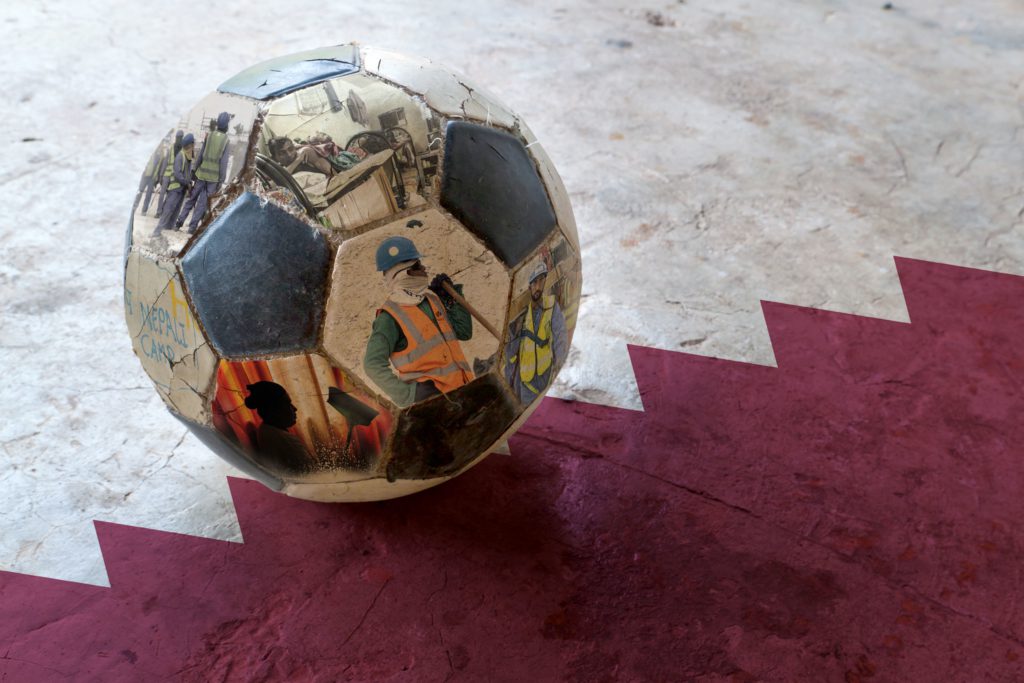
But in the decade since Qatar was awarded the right to host the World Cup, exploitation and abuse of these workers has been rampant, with workers exposed to forced labour, unpaid wages and excessive working hours.
After years of mounting international pressure, in 2017 the Qatar government signed an agreement with the International Labour Organization (ILO), promising to tackle widespread labour exploitation and “align its laws and practices with international labour standards”, and offering a glimmer of hope for those contributing so much to the country and its dream to realise the World Cup.
But with just 730 days left until kick off, are Qatar’s promises of labour reform matched by the reality faced by the migrant workers upon whom the country so heavily depends?
Longstanding abuse of migrant workers in Qatar
At the heart of the abuse faced by migrant workers is Qatar’s ‘Kafala’ system of sponsorship-based employment which legally binds foreign workers to their employers. Over the last decade, Amnesty International and others have shown how the system – which until recently prevented workers from changing jobs or even leaving the country without their employer’s permission – traps migrant workers in a cycle of abuse.
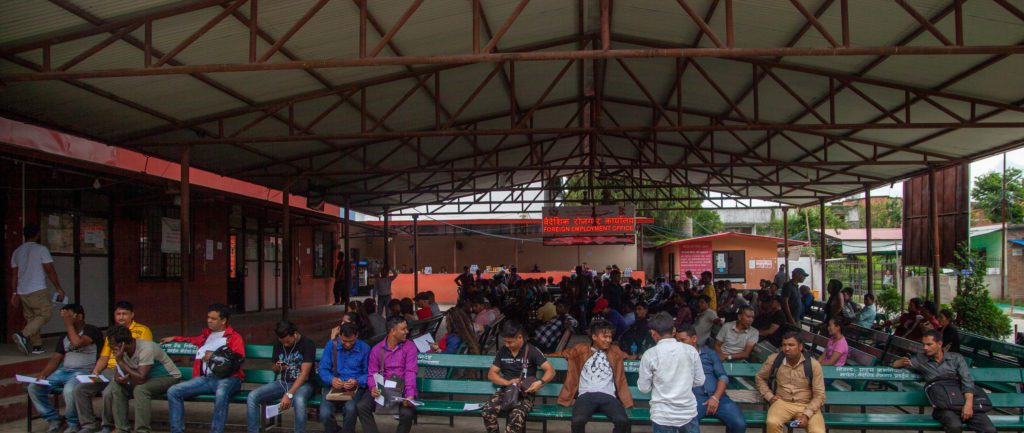
Other factors linked to the abuse of migrant workers, and which are not directly addressed by recent legal changes are high levels of worker debt caused by illegal and unethical recruitment practices, the late and non-payment of wages, barriers to obtaining justice when rights are violated, the prohibition of trade unions and the failure to enforce labour laws and penalize employers who abuse their workers.
Beyond the spotlight of the World Cup and Qatar’s, the country’s domestic workers continue to face severe and widespread abuse at the hands of abusive employers, and risk being left behind in the reforms.
The promise of reform
Following years of promises but limited action, in November 2017 Qatar signed an agreement with the UN International Labour Organisation (ILO) that has given rise to greater optimism. Now with an office in Qatar, the ILO is working with the authorities on a wide-ranging reform process that includes five strands of work: reform of the sponsorship system, access to justice, worker voice, health and safety, and pay and recruitment.
Since 2017, the government has passed several pieces of new legislation aimed at benefiting migrant workers, including introducing a law for domestic workers, setting up new labour dispute committees and establishing a workers’ support and insurance fund. It has also ratified two important international human rights treaties, albeit indicating that it will not abide by some of their key obligations, for example on the right for workers to form trade unions. In 2018 Qatar ended the ‘exit permit’ requirement for most workers, meaning those benefiting should now be able to leave the country without their employer’s permission. At the time, domestic workers were excluded from that reform, but at the end of 2019, the exit permit was also abolished for them.
In 2020, Qatar has made further important progress, including ending the No-Objection Certificate requirement, meaning all workers should now be able to change jobs without their employer’s permission, and introducing a new mandatory minimum wage in August.
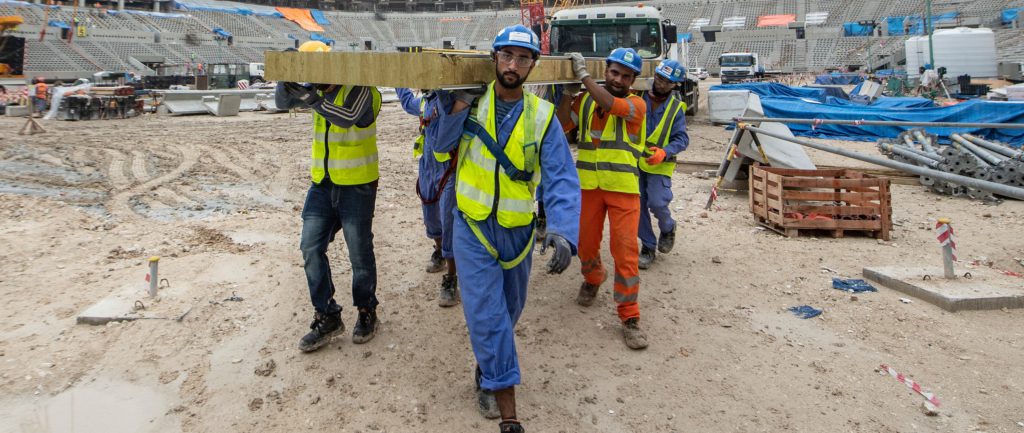
While positive, the impact these legal changes will have on the day-to-day lives of migrant workers and will rest on how the Qatar government applies them in practice. Weak implementation and enforcement of some of the reforms introduced in recent years and detailed above means thousands of workers have been left at the mercy of unscrupulous employers.
History here ought to sound a major note of caution that legislative reforms alone do not automatically translate into real impact for workers, and for these changes to be more than ink on paper, far greater efforts are needed.
Today, the reality for many migrant workers in Qatar remains harsh and will continue to be so until the reform process is completed, far better implemented in practice and enforced effectively. The government must also take further measures to ensure protection of all workers, because while the latest legal changes may make it easier to escape abusive situations, they are unlikely to put an end to the abuse itself.
CONTINUING DEPENDENCE ON EMPLOYERS AND RETALIATORY MEASURES
Despite important reforms to the kafala sponsorship system, migrant workers in Qatar are still tied to their employers who act as their official “sponsor” (kafeel) from the moment they enter the country and throughout their employment. Migrant workers cannot themselves request or renew their residence permits and it is the responsibility of the sponsor to do so. However, if the sponsor fails to renew the permit, it is the worker who faces punishment.
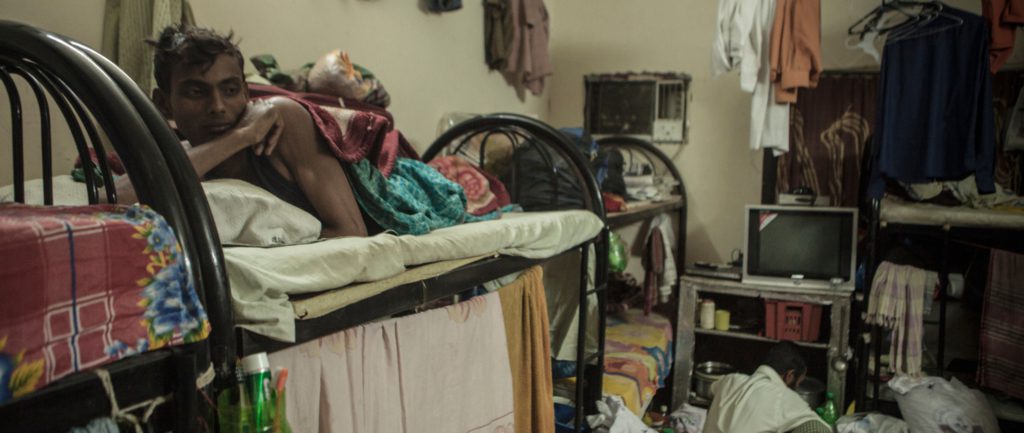
Indeed, employers continue to have the legal right to cancel workers’ residence permits or file “absconding” charges against migrant workers who leave their jobs without permission. Migrant workers then lose their right to stay in Qatar and consequently face arrest and deportation. This system perpetuates the imbalance of power in favour of employers and increases the risk of labour abuses. Additionally, passport confiscation appears to remain widespread, particularly among the country’s 173,000 domestic workers, and can undermine the recent reforms. For instance, workers without a passport struggle to leave the country or change jobs even if they can now do so without their employer’s permission.
WAGE THEFT
Qatar’s introduction in 2015 of a wage protection system mandating companies to pay their workers electronically allowed the Government to monitor payments to employees and detect irregularities and intervene to stop wage theft. However, the system remains ineffective, and thousands of migrant workers still suffer from late or non-payment of wages. Having often taken out high-interest loans to pay costly and illegal recruitment fees, such delays can be devastating for workers, particularly when they are supporting not only themselves but families in their home countries. In hundreds of cases the government’s new labour dispute committees are still taking many months to hear cases – and may still fail to ensure payment when companies will not or cannot pay. Many workers have had to return home penniless as a result.
One worker, whose company failed to pay him for months on end between 2019 and 2020 told Amnesty International his son was no longer able to go to school as he could not afford to pay his school fees:
We don’t know what to do. We don’t have residence permits, we are here illegally. Our employer can run away at any time, he is not a Qatari national. We are heading to seven months without salary. Me, personally, I am okay, but what about my kids? Now my eldest child is at home, he cannot go to school.
Daniel
All Work, No Pay
In March 2018, Qatar established the Committees for the Settlement of Labour Disputes (Committees). Replacing the notoriously ineffective labour courts, the Committees were one of the most encouraging steps in Qatar’s labour reforms; promising to resolve their complaints and give workers a legally enforceable judgement within six weeks.
But Amnesty International’s research – focused on 2000 workers from three companies – has found that Qatar is still falling short of providing workers adequate access to justice. The new Committees are simply overwhelmed. Too many cases for too few judges means that workers are waiting months – sometimes up to eight – for their complaints to be processed. In those cases where workers do receive positive judgements, a lack of effective enforcement means that companies are too often failing to pay the compensation ordered, forcing workers to continue their fight at the civil courts in an attempt to retrieve their money.
Having been abandoned by their companies, with no pay for months and a lack of food and water, workers survive on charity handouts, their dire situations meaning many feel little option but to leave Qatar and return home with empty pockets.
If Qatar is to change course and meet its commitments on improving access to justice, it needs to take action swiftly to increase the capacity of the Committees to manage cases; enhance their ability to hold perpetrators to account; ensure the Workers’ Support and Insurance Fund is systematically implemented and available to all workers whose employers have failed to pay.
DOMESTIC WORKERS
In August 2017, Qatar enacted the Domestic Workers Law. This promised to limit the working hours of the more than 173,000 domestic workers currently in Qatar and provide them with rest time, a weekly paid day off and other protections.
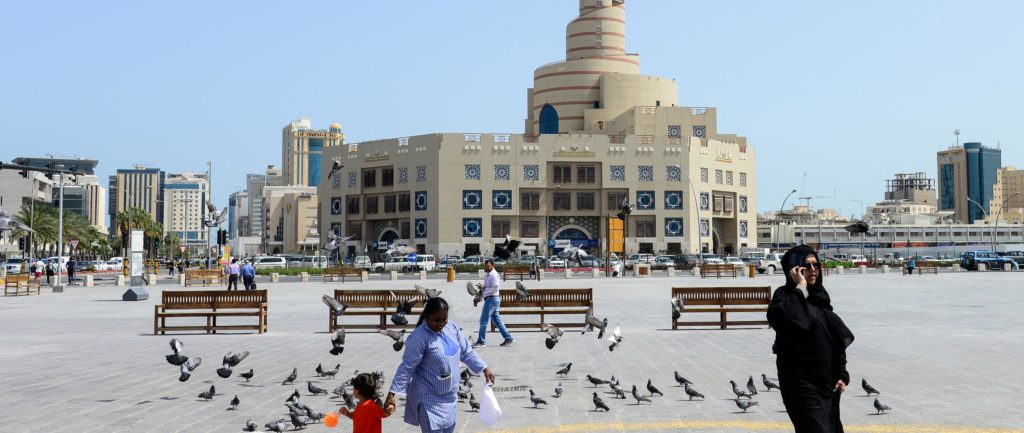
However, three years later, domestic workers continue to face the most gruelling working conditions and are subjected in many cases to appalling abuse, including serious crimes of physical and sexual assault.
Ninety of 105 domestic workers contacted by Amnesty in the course of its research said they regularly worked more than 14 hours per day and 89 regularly worked seven days a week. Half of the women worked more than 18 hours per day, and most had never had a single day off at all. Some also reported not being paid properly, while 40 women described being insulted, slapped or spat at. One woman said she was treated “like a dog”.
FIFA
FIFA has said it was unaware of the Qatar Meta Coats situation until May 2020, when Amnesty International informed the Supreme Committee. It added that it was not being “routinely notified” of all cases requiring remediation. Instead, it appears it is trusting its partners, including the Supreme Committee, and their systems to protect workers’ rights on World Cup sites. The fact that FIFA was unaware of the plight of workers at a World Cup site for so long shows it is still failing to take human rights abuses linked to the World Cup seriously enough.
WHAT SHOULD QATAR DO?
With only two years until the World Cup kicks off, and three years since the ILO agreement was signed, it is essential that the Qatari authorities accelerate their efforts to truly transform the protections available to their migrant worker population.
Supported by the ILO, and encouraged by its partners, the Government of Qatar should:
- Effectively implement and enforce recent reforms, whilst introducing further measures:
- Strengthen inspection mechanisms to quickly detect and stop abuses;
- Ensure payment of decent wages and tackle worker debt
- Improve workers’ ability to access justice and ensure abusive employers are held to account;
- Ensure better protection for migrant domestic workers; and
- Promote migrant workers’ voices and respect their right to form trade unions.
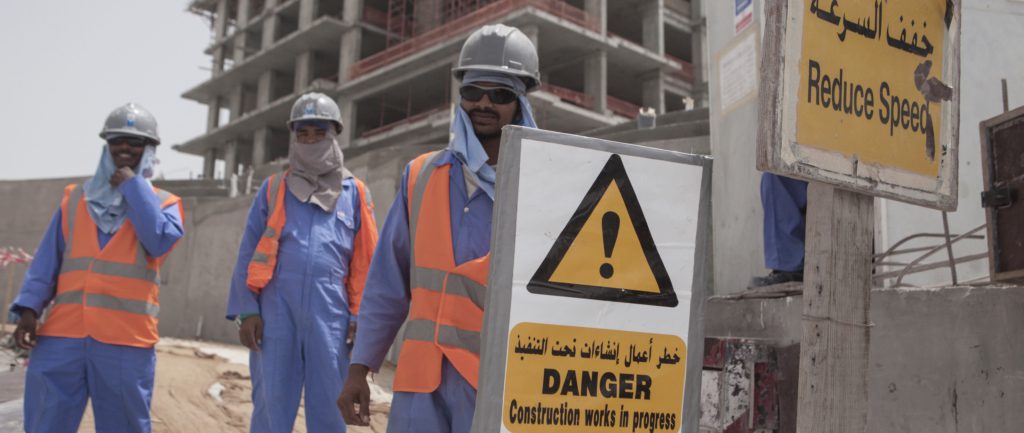
What about FIFA and companies in Qatar?
Responsibilities and solutions do not only lie with the Qatari government. The UN Guiding Principles on Business and Human Rights makes clear that companies must – at a minimum – respect human rights, including the rights of workers. This means taking adequate measures to prevent, mitigate and – where necessary – redress human rights abuses connected to their operations. Under no circumstances should companies take advantage of the flaws in Qatar’s labour system to exploit workers.
For entities like FIFA, this means having an ongoing responsibility to both prevent abuses and to address those that have occurred as a result of their business operations linked to the World Cup. In line with its own Human Rights Policy, FIFA should not only ensure the respect of labour rights in the construction of World Cup stadia, but also use its leverage to ensure rights are respected in a broader range of infrastructure projects needed for delivery of the 2022 World Cup. This would include, for example, the cooling systems or accommodation complexes highlighted in the Mercury MENA case, key transport projects and the hospitality sector.
With the clock ticking, FIFA should also proactively seek to influence the Qatari authorities to fully and quickly deliver on their promised reforms, so that the protection of all migrant workers in the country may be a positive and enduring legacy of the 2022 World Cup.
Other stakeholders including other governments, national football associations and sponsors can also add their voices and play an influential role at this critical juncture.
Download the 2020 and 2019 full reports in PDF
Reality Check: The State of Migrant Workers’ Rights before the Qatar 2022 World Cup

